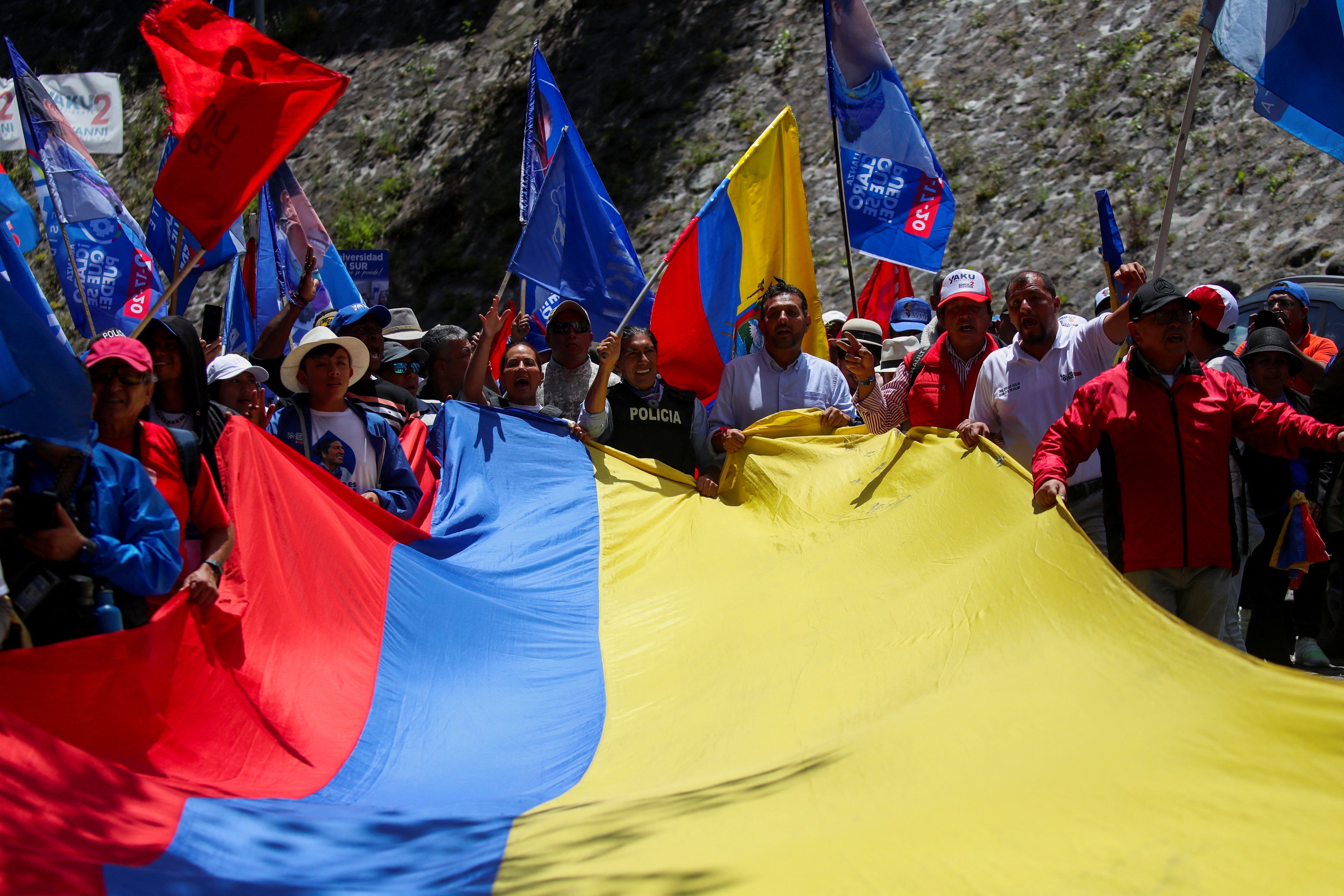Ecuadorians will head to the ballot box on Aug. 20 to vote in elections that have been upended by the assassination of presidential candidate Fernando Villavicencio and other politicians. Luisa Gonzalez, who has the backing of exiled former President Rafael Correa, continues to lead the polls, though she is now facing tough competition from Jan Topic, a former soldier with a hardline security message.
We asked Eurasia Group experts Risa Grais-Targow and Yael Stenberg what to watch for in these elections and their aftermath.
What impact is Villavicencio’s killing having on the election?
Security concerns, already top of mind for voters, are now even more important. Three other politicians have been killed during this campaign cycle – a mayor and two legislative candidates – though the gunning down of a presidential candidate after a speaking event has been the most shocking development. Ecuador has in recent years been engulfed by a devastating wave of crime and insecurity as drug trafficking activity has spread from neighboring Peru and Colombia. The number of murders has surged 500% since 2016 to 22 per 100,000 people, and conflicts among criminal groups have caused bloody prison riots. Voters also remain concerned about a deteriorating economic situation, a lack of jobs, and high inflation.
How will it affect voter preferences?
Gonzalez had been leading the polls by a wide margin, benefiting from Correa’s loyal base of support (about 30% of the electorate) in a crowded field of eight candidates and voter demands for change. But Villavicencio’s death has diminished her lead, making it less likely she wins the election in the first round – which requires she secure 40% of the vote and a 10-percentage point lead over her closest competitor – and more likely a runoff vote will be needed on Oct. 15. Villavicencio was an aggressive anticorruption campaigner and Correa critic, so his killing could sway those outside of the loyal correista base who were leaning toward voting for Gonzalez to change their minds.
Topic, a newcomer to politics and security hardliner, now appears to be the most likely candidate to make it to the second round in addition to Gonzalez, though he faces a tight four-way race with former vice president Otto Sonnenholzner, leftist indigenous candidate Yaku Perez, and Christian Zurita (the candidate replacing Villavicencio). If Topic does make it to a second round against Gonzalez, he would have the advantage given his outsider appeal and experience as a former soldier and owner of a private security firm.
This vote is happening more than a year early. Why?
Conservative President Guillermo Lasso faced significant governability challenges almost as soon as he took office in May 2021. Those included protests by indigenous groups that erupted in June 2022 and a highly obstructionist national assembly that tried to impeach him three times. The first two attempts petered out, but a third attempt, over corruption allegations implicating members of his family, gained steam in February. It coincided with Lasso’s defeat in a popular referendum, which left him even more politically weakened. Facing the prospect of removal that would have left his vice president to finish his term, Lasso turned to a never-before-used tool enshrined in the 2008 constitution to dissolve the national assembly and trigger snap elections.
What are the biggest challenges the next president will face?
Widespread fear will force the next president to confront the security situation. Some of the candidate's proposals to do so include tightening border security, strengthening the security forces, and rooting out corruption from government contracts (which many see as infiltrated by criminal enterprises). Meanwhile, the economy is slowing, and the government is facing increasing financial constraints after losing access to international capital markets. Yet the next president will have little time to address these issues, because the new president and assembly will only serve out the remainder of Lasso’s term, which concludes in May 2025. Consequently, the next administration and incoming lawmakers will immediately focus their attention on reelection in February 2025, limiting their appetite for difficult reforms. Correa’s Citizens’ Revolution Party will probably capture the largest share of the national assembly but fall short of a majority (70 of 137 seats), posing a challenge for advancing legislation. An alternative leader would hold a much smaller share of the assembly and would need to build a diverse coalition to advance reforms.
What is Correa’s role in these elections?
Though exiled in Belgium and convicted in absentia on corruption charges, Correa has continued to play an outsized role in Ecuadorian politics since leaving office in 2017. He was succeeded by his former ally and Vice President Lenin Moreno, who later turned on him. Correa then backed another ally for president in 2021, but that person lost to Guillermo Lasso in an election that was largely shaped by corruption concerns. In the current electoral cycle, those concerns have subsided, and nostalgia for Correa’s presidency has grown with more distance. Gonzalez has sought to tap into that sentiment with frequent references to the former president, while Correa himself has frequently weighed in with comments on social media.
Correa has said he would like to return to Ecuador and run again for office at some point. What are the odds of that happening?
Correa faces two obstacles: the legal case against him and term limits stipulated by the constitution. Upcoming appointments of new justices to the national court of justice could pave the way for the reversal of Correa’s conviction. Meanwhile, if Gonzalez wins, the staunch Correa loyalist is expected to try to reform the constitution to allow him to run again for president in 2025. That would require a referendum or a constituent assembly, though the latter would be difficult to do in the short timeframe before the 2025 contest begins.
Edited by Jonathan House, Senior Editor at Eurasia Group
